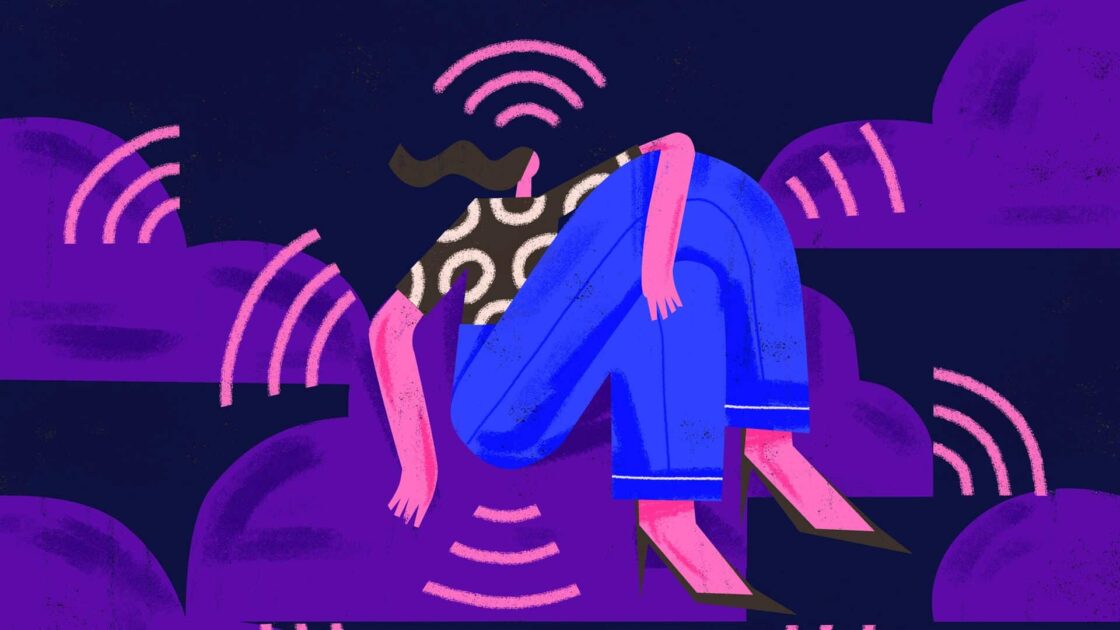Cyberbullying: what to do if you’re being bullied online
How to deal with being bullied via text, online, social media, or gaming

Most of us are never far from our smartphones, laptops or tablets. While being so connected can be a positive thing, it does have its downsides. Anyone who spends time on the internet may be bullied online. This is sometimes referred to as cyberbullying.
What is cyberbullying?
Cyberbullying is a type of bullying. It describes abusive online behaviour carried out by a person or a group against another person or group.
When taking part in discussions online, you might get into an argument with other people because you don’t share the same opinions. This is a form of conflict or disagreement, and it can be upsetting. However, it is not necessarily abusive behaviour. Abuse is behaviour in which a person or group uses their power over their target to cause harm.
Cyberbullying can happen to anyone, anywhere and at any time. Cyberbullying is similar to other forms of bullying. However, the use of technology means that it can be more persistent, time consuming and harder for you or others to know if you’re being bullied.
As with other forms of bullying, cyberbullying can be a once-off occurrence, or can be carried out repeatedly over time. Because it’s so easy to share content online, when one person posts something hurtful and it gets shared by others, the victim will experience that pain over and over again. In other instances, several forms of cyberbullying may occur at once. For example, a bully may target their victim with abusive messages (i.e. harassment) and by publicly making fun of them (i.e. viral shaming).
While cyberbullies usually know their targets offline, they may hide their identity or use a fake name online. This makes it easier for them to attack others, as it is more difficult for their target to identify them. Whether you know who the bully is or not, it is important to remember that the bullying is not your fault and that it can be stopped. There is plenty of support available if you are being bullied.
Types of cyberbullying
There are many types of cyberbullying. With different technology and online platforms, there are various methods bullies use. Examples of cyberbullying might include:
-
Using technology to make somebody feel stressed or intimidated. Known as harassment, this can involve sending abusive and hurtful messages by text or through social media platforms
-
Deliberately hurtful comments posted on online videos, photos or posts
-
Spreading rumours about another person using social media platforms, messaging apps such as WhatsApp, texts and any other form of digital communication
-
Threatening to share/sharing photos and/or information about someone without their consent
-
Using someone’s login details to hack into their online accounts and post content under their name
-
Exclusion from online events, chat rooms, games and activities
-
Online stalking, which may involve gathering information about someone, monitoring someone’s online and real-world activities, obsessively messaging someone and other behaviours intended to cause the victim to feel intimidation
-
Viral shaming by ridiculing or making fun of someone for something they did, how they look, or their personality on a public platform which allows others to join in the ridicule
Reasons for cyberbullying
There are many reasons why somebody may cyberbully. They may be bored and harm others as a form of entertainment. Sometimes, a person might target someone online to get back at someone they are mad at. Like any form of bullying, a person who bullies online may have been bullied themselves. A person might also bully because of abuse and violence in the home, a lack of love or attention, anger problems or low self-esteem. No matter what the reason is, it is important to remember that it is not your fault if you are being bullied. There is no excuse for bullying of any kind.
Effects of cyberbullying
Just like other forms of bullying, cyberbullying can harm your mental and physical health. Anxiety, low self-esteem, self-harm and difficulty sleeping are just some of the many things you may experience if you are being cyberbullied. Victims of cyberbullying may also have higher levels of depressive symptoms.
If you are being cyberbullied, you may experience:
-
Emotional distress, sadness and tearfulness
-
Frustration and high levels of anger
-
Shame, embarrassment and self-blame
-
Damage to physical and emotional well-being
-
Reduced self-esteem, lack of confidence and depression
-
A sense of fear
-
Helplessness
-
Reduced performance at school or work, particularly if you are not feeling safe in that environment
What to do if you’re being bullied online
If you’re experiencing bullying online, it’s important to know that there is support.
Record don’t respond
Bullies want their comments and actions to upset you. Any reaction they get from you can give them a sense of satisfaction. Don’t respond to them, even if you want to. Doing so will encourage them to continue. What you can do is take screenshots of their messages, posts and other harmful actions as evidence of their behaviour. This may be useful if you chose to report their behaviour. Here are some guidelines on recording evidence of bullying.
Block the bully
If the person is targeting you on social media or over email or text, block their accounts and numbers. If they set up new accounts or recruit friends to abuse you, block these accounts too.
Go offline
Spending time on the internet may be scary for you when you have been cyberbullied. It is completely ok to switch off your devices and spend some time offline. Spend this time doing things you enjoy and being with loved ones.
Talk to someone
If the bullying continues, it is important to speak up. Silence is a bully’s best friend. Tell someone you trust about what is happening as soon as you can. Even better if they are in a position of power and can help. This could be a close relative, a family friend, a health professional or a youth worker. If you know that the bully is somebody at your school or workplace, speak to a teacher or manager. You can also contact one of the free confidential support services listed at the end of this article.
Change your passwords
A bully might steal and use your login details to access your online accounts. If this has happened to you or you think they have your private details, make sure to change all of your passwords and security details.
Reporting the bullying
If you’re being harassed online, worried or concerned about a piece of content that has been uploaded that you are in, or feel that you’re being targeted or talked about online, contact a trusted adult or friend and let them know what’s going on. If the person bullying you is in your school or workplace, report them to someone in charge.
You can also report the person or group of people to the social media site they are bullying you on. If it violates the site’s terms of service or content guidelines, they may remove the content. Keeping records of the bullying can be helpful for this.
The person you are reporting won’t know it was you that reported their account.
Reporting to the Gardaí
Some forms of cyberbullying are illegal including inappropriate sexual suggestions and comments, racist remarks, distribution or publication of intimate images without consent, harassment and any form of persistent bullying. In cases that could be illegal, report the bullying to Gardaí yourself or through your parents.
Cyberbullying support services
Experiencing bullying can be incredibly distressing – you reach out to the support organisations below for support:
50808
50808 is a free, 24/7 text message support service providing everything from a calming chat to immediate support for people going through a mental health or emotional crisis – big or small.
To talk to a trained volunteer now, free-text SPUNOUT to 50808 to begin.
If you are a customer of the 48 or An Post network or cannot get through using the ‘50808’ short code please text HELLO to 086 1800 280 (standard message rates may apply). Some smaller networks do not support short codes like ‘50808’.
Childline
Childline has a 24 hour freephone number for under 18’s – you can call 1800 666 666 any time, day or night.
Their text service is available from 10am to 4pm every day – you can start a conversation by texting 50101. You can also chat online at childline.ie from 10am to 4pm every day.
TeenLine
Teenline is a 24/7 national active listening service for children and young people up to the age of 18 in Ireland. You can contact them for free any time of the day or night by calling 1800 833 634.
TeenLine is free to contact and is confidential, non-directive and non-judgmental.
Samaritans
Samaritans are a 24/7 active listening service, there to listen to you no matter what’s going on. You can talk to a Samaritans volunteer for free by calling 116 123 any time of the day or night.






